Selecting the best headphones for recording vocals
In the world of audio production, capturing studio-quality vocal recordings demands precision, clarity, and intimate sound understanding. Headphones, among numerous tools, play a pivotal role. They often serve as the bridge between raw vocal talent and polished sound. Selecting the best headphones for recording vocals is not just a matter of preference but a critical decision that can significantly impact the monitoring, mixing, and final output of vocal tracks. This exploration delves into how the right headphones transform the recording experience. It highlights their indispensable role in achieving pristine vocal recordings.
The Importance of Headphone Selection:
The journey towards capturing exceptional vocal recordings begins with choosing the right headphones. High-quality headphones provide the sound fidelity needed to discern the nuances of the voice. They capture subtle breaths and rich overtones, defining vocal character. The best headphones for recording vocals offer a flat, uncolored response, allowing sound engineers and vocalists to hear the voice as it truly is, without enhancement or modification.
Closed-Back Design: The Standard for Vocal Recording
For vocal recording sessions, closed-back headphones are the gold standard. Their design isolates the vocalist from ambient noise, ensuring the microphone captures only the voice. Isolation is crucial to minimize bleed, preventing backing tracks from leaking into the vocal mic and complicating mixing. By providing a controlled listening environment, closed-back headphones allow vocalists to focus on their performance, free from external distractions. When considering the best headphones for recording vocals, emphasis on isolation is key to achieving pristine recordings.
Monitoring with Precision of best headphones for recording vocals:
Additionally, effective monitoring is essential for capturing studio-quality vocal recordings. Moreover, the best headphones for recording vocals enable real-time monitoring, facilitating on-the-fly adjustments. These adjustments, including levels, effects, and EQ settings, are crucial. Moreover, the immediate feedback loop they provide is vital. It ensures that the vocal takes are consistent. Additionally, it ensures they are well-balanced and free of technical issues such as clipping or sibilance.
Clarity and Detail
Headphones excel in vocal recording by reproducing the human voice with exceptional clarity and detail. Furthermore, this precision aids engineers in identifying and addressing recording quality issues like plosives or pitch inaccuracies. Consequently, it helps ensure high-quality recordings. By facilitating a meticulous approach to monitoring, high-quality headphones contribute to a more refined and polished vocal track.
Mixing and the Quest for Transparency:
Once the recording phase is complete, the focus shifts to mixing, where headphones again play a crucial role. The best headphones for recording vocals double as invaluable tools for mixing, providing the transparency and flat frequency response needed to make informed decisions about the vocal mix.
Balance and Spatial Accuracy
In the mixing stage, headphones must offer not only clarity but also accurate soundstage representation. This spatial accuracy plays a crucial role, seamlessly placing the vocals within the mix perfectly. Consequently, this ensures that the vocals complement the instrumentation without overpowering it or being overshadowed. Quality headphones enable engineers to fine-tune panning, reverb, and spatial effects. Consequently, this crafting ensures vocals shine with depth and presence in mixes.
The Right Headphones: A Catalyst for Creativity
Beyond their technical contributions, the best headphones for recording vocals also serve as a catalyst for creativity. High-quality headphones offer vocalists immediate feedback, inspiring nuanced performances with experimentation in dynamics, phrasing, and emotional expression.
Comfort and Endurance
You should not overlook the physical attributes of headphones—comfort, build quality, and fit. Recording vocals is often an intensive process, with long sessions that can test the endurance of both vocalist and engineer. Comfortable headphones for extended wear prevent fatigue, maintaining high creativity and focus from the first to the last take.
Playing a critical role of best headphones for recording vocals:
The quest for studio-quality vocal recordings depends on various variables, with headphones playing a critical role. Additionally, selecting the best headphones for recording vocals influences every phase, from capturing raw emotion to fine-tuning the final mix. Skilled producers and engineers view headphones as creative partners, not just tools. Consequently, they elevate vocal recordings from good to extraordinary.

Image: Studio Setting with Vocalist Using Headphones
In a serene recording studio environment, a vocalist stands in front of a microphone, wearing over-ear, closed-back headphones. Moreover, the studio is dimly lit, creating a focus on the artist. In the background, there’s a glimpse of soundproofing materials and recording equipment, enhancing the professional setting.
In the realm of music production, the studio setting acts as a crucible. It transforms raw vocal talent into polished artistry. Headphones play a crucial role in this alchemical process and one cannot overstate their importance. The quest for the best headphones for recording vocals is not merely a technicality but a fundamental aspect that influences the outcome of a recording session. This exploration highlights how the right headphones in a studio setting can enhance the vocal recording experience. It contributes to exceptional vocal tracks.
The Significance of best headphones for recording vocals:
The studio environment serves as a sanctuary, designed with the singular purpose of capturing sound at its purest. Within this space, headphones become indispensable. Furthermore, headphones serve as the vocalist’s tether to the musical foundation, enabling crucial immersion for compelling performances.
Isolation and Intimacy
High-quality, closed-back headphones provide the isolation necessary for vocalists to fully immerse themselves in the music. Moreover, isolation shields the microphone from unwanted sounds, creating an intimate sonic environment. Consequently, the vocalist connects deeply with the song. Such headphones are instrumental in achieving clean, clear, and focused recordings, devoid of bleed from backing tracks or ambient noise.
Enhancing Vocal Performance Through Accurate Monitoring:
The ability to accurately monitor one’s voice is vital for vocalists striving to deliver their best performance. Therefore, the best headphones for recording vocals offer a flat, uncolored sound profile, ensuring that what the vocalist hears is a true reflection of their performance.
Real-Time Feedback for Perfection
Quality headphones provide immediate, accurate auditory feedback, facilitating nuanced adjustments to pitch, tone, and dynamics. Consequently, this real-time monitoring captures the emotional essence of the performance. It enables vocalists to fine-tune their delivery to resonate with listeners.
The Role of Headphones in Achieving Sonic Synergy:
In a studio setting, the collaboration between the vocalist and the sound engineer is a dance of creativity and technical precision. Here, headphones maintain the rhythm of this partnership, ensuring synchronization between both parties in their pursuit of sonic excellence.
Communication and Collaboration
The best headphones for recording vocals bridge the barrier seamlessly. Furthermore, they connect the technical realm of the sound engineer with the artistic domain of the vocalist. These headphones facilitate clear communication, allowing for instant feedback and adjustments. Consequently, this synergy is crucial for maintaining the flow of the recording session, fostering an environment where creativity flourishes.
Selecting the Right Headphones: A Critical Decision
The choice of headphones can make or break a recording session. Therefore, headphones for vocalists must go beyond comfort, acting as extensions of their auditory senses. Moreover, they should offer clarity and accurately represent their voice within the mix.
Criteria for Choosing the Best Headphones for Recording Vocals:
- Sound Quality: A flat, neutral response that accurately reproduces vocals without coloration.
- Comfort: Ergonomic design that remains comfortable over long recording sessions, preventing listener fatigue.
- Durability: Robust build quality that can withstand the rigors of studio use.
- Isolation: Excellent noise isolation to prevent bleed and ensure focus.
Fostering Creativity and Comfort in the Studio:
The physical and sonic comfort provided by the best headphones for recording vocals can significantly impact the vocalist’s ability to perform. In a studio setting, designers aim to inspire creativity through every aspect. They treat the room acoustically and select equipment carefully, considering headphones a critical component.
The Psychological Impact of Quality Headphones
For vocalists, the headphones are a source of confidence, allowing them to hear the intricacies of their performance and the subtleties of the instrumentation. Consequently, this auditory clarity can be incredibly empowering, encouraging vocalists to explore the depths of their expressive capabilities.
Importance of selecting the best headphones for recording vocals:
In pursuing studio-quality vocal recordings, one cannot overstate the importance of selecting the best headphones. Essential tools provide more than sonic isolation; they offer clarity and confidence for resonant performances. In the studio, headphones are critical instruments, not mere accessories. They contribute to transforming vocal talent into recorded artistry. Through careful selection and use, synergy and excellence are achieved. This elevates recording from routine to remarkable.
Types of Headphones Suitable for Vocal Recording:
- Closed-Back Headphones: For Isolation and Focus
- Open-Back Headphones: For Natural Soundstage

Image: Comparison of Closed-Back and Open-Back Headphones
An image that showcases both closed-back and open-back headphones side by side. The closed-back headphones should appear robust and fully sealed, emphasizing isolation. In contrast, the open-back headphones have a transparent outer shell, showcasing their open design for a natural sound.
In the nuanced world of vocal recording, the choice of headphones can dramatically influence the quality of the final product. Understanding the types of headphones suitable for this task is essential for both sound engineers and vocalists aiming to capture pristine, emotive performances. The quest for the best headphones for recording vocals often boils down to two main categories: closed-back and open-back headphones. Each type offers distinct advantages, tailored to different aspects of the recording and monitoring process.
Closed-Back Headphones: The Cornerstone of Vocal Recording
Closed-back headphones are widely regarded as the best option for recording vocals, primarily due to their superior sound isolation. This design features ear cups with solid outer shells that effectively prevent sound from leaking into the microphone and ambient noise from entering the vocalist’s ears.
Isolation and Focus
The hallmark of closed-back headphones is their ability to create a sonically isolated environment for the vocalist. This isolation becomes crucial during the recording phase to minimize microphone bleed – the leakage of backing tracks or instrumental sounds into the vocal mic. Closed-back headphones isolate the vocalist from external noise. This isolation allows for a higher level of focus on the performance. It ensures the capture of every breath, nuance, and emotion with clarity.
Precision Monitoring
For sound engineers, the ability to monitor vocal recordings with precision is non-negotiable. Additionally, closed-back headphones provide essential detail and accuracy for identifying vocal subtleties like pitch variations and enunciation clarity. Consequently, this monitoring capability enables real-time adjustments by engineers and producers. It ensures the highest possible quality in vocal takes.
Open-Back Headphones: Expanding the Soundstage
Open-back headphones, characterized by their ventilated ear cups, provide a contrasting listening experience. While they may not be the first choice for the actual recording phase due to their lack of sound isolation, they shine during mixing and critical listening sessions.
Natural Soundstage
Open-back headphones are celebrated for their ability to deliver a natural, expansive soundstage. This quality is particularly beneficial in the mixing phase, where understanding the spatial relationship between vocals and instrumentation is key. The open design allows sound to flow freely, mimicking the experience of listening to music in an open space.
This naturalistic representation of sound helps engineers and vocalists make informed decisions about balance, panning, and effects, contributing to a mix that feels both cohesive and dynamic.
Clarity and Transparency
The strength of open-back headphones lies in their transparency and the clarity of sound they provide. Furthermore, without the resonance sometimes caused by closed-back designs, open-back headphones offer a true-to-life audio experience. Consequently, clarity aids critical listening, allowing producers to analyze vocal and mix details. Moreover, open-back headphones provide transparency for accurate decision-making. Consequently, adjustments like EQ, compression, and reverb are fine-tuned precisely.
Balancing the Best of Both Worlds
In the pursuit of the best headphones for recording vocals, the choice between closed-back and open-back designs often comes down to the specific requirements of the recording session and the stages of production involved. Consequently, it’s essential to consider various factors before making a decision.
The Recording Phase: Closed-Back Preferred
During the recording of vocals, the paramount concerns are sound isolation and the prevention of microphone bleed. Closed-back headphones excel in this environment, offering vocalists and engineers the focus and sonic isolation needed to capture clean, clear vocal tracks.
The Mixing and Mastering Phases: Open-Back Advantages
Once the recording phase is complete, open-back headphones become an invaluable tool for mixing and mastering. Their natural soundstage and transparent audio reproduction provide a critical perspective on the mix, aiding in the creation of a balanced, spatially accurate final product.
Isolation and focus for recording vocals:
Selecting the best headphones for recording vocals involves a careful consideration of the unique benefits provided by both closed-back and open-back designs. Closed-back headphones provide isolation and focus for recording, while open-back headphones offer clarity and natural soundstage for mixing. Understanding these distinctions informs decision-making. Sound engineers and vocalists execute each production step with precision and artistry.
Top Picks for best headphones for recording vocals:
- Model X: The Industry Standard
- Model Y: Best for Comfort and Durability
- Model Z: The Budget-Friendly Choice

Image: A Selection of Three Top Headphone Models
An image that displays three distinct headphone models, each representing the top picks best headphones for recording vocals. They are arranged on a sleek, reflective surface, with subtle lighting to highlight their features. Additionally, each model has a unique design, suggesting their specific advantages: industry standard, comfort, and affordability.
When it comes to recording vocals, the significance of choosing the right headphones cannot be overstated. These crucial tools not only influence the comfort of the vocalist during long studio sessions but also the accuracy of sound monitoring, ultimately impacting the quality of the final recording. Among the plethora of options available in the market, three models stand out for their exceptional qualities: Model X, known as the industry standard; Model Y, celebrated for its comfort and durability; and Model Z, recognized as the budget-friendly choice.
Each of these models brings something unique to the table, catering to different needs and preferences of sound engineers and vocalists alike.
Model X: The Industry Standard
Model X has earned its reputation as the industry standard for the best headphones for recording vocals, thanks to its unparalleled sound quality and precision. Furthermore, designed with professional studio environments in mind, these headphones offer an unmatched combination of clarity, flat frequency response, and isolation, making them an indispensable tool for capturing pristine vocal tracks.
Unmatched Sound Clarity
The defining feature of Model X is its exceptional sound clarity. With a flat and neutral frequency response, these headphones ensure that vocals are heard with absolute accuracy, devoid of any coloration or enhancement. This allows sound engineers to make precise adjustments to the mix, ensuring that the vocals sit perfectly within the track.
Superior Isolation
Model X’s closed-back design provides excellent sound isolation, a critical factor in preventing microphone bleed during vocal recordings. This isolation not only ensures the purity of the vocal tracks but also allows vocalists to concentrate fully on their performance, free from distractions from the outside world or the backing tracks.
Model Y: Best for Comfort and Durability
While sound quality is paramount, comfort and durability are also crucial considerations, especially during extended recording sessions. Model Y stands out in this regard, offering unparalleled comfort and built to withstand the rigors of frequent use in professional settings.
Ergonomic Design for Extended Comfort
The design of Model Y prioritizes the user’s comfort, incorporating plush ear pads and an ergonomic headband that allows for hours of wear without discomfort. This focus on comfort ensures that vocalists can maintain their focus and performance level throughout long recording sessions, without physical discomfort hindering them.
Built to Last
In addition to comfort, Model Y is renowned for its durability. Constructed with high-quality materials and designed to endure the demands of studio use, these best headphones for recording vocals are an investment that will serve studios and vocalists faithfully over the years. Their robust build quality means less worry about wear and tear and more focus on creating outstanding vocal tracks.
Model Z: The Budget-Friendly Choice
For home studios or individuals just starting in music production, the cost can be a significant barrier. Model Z offers an affordable solution without compromising on the essential features needed for recording high-quality vocals.
Exceptional Value
Model Z surpasses all other headphones within its price range for recording vocals, offering an unmatched balance of sound quality, comfort, and durability that outperforms all other budget-friendly options. It proves that you don’t have to break the bank to get a decent pair of headphones capable of capturing studio-quality vocal recordings.
Solid Performance for the Price
While Model Z may not offer the same level of refinement as the higher-end models, it still delivers solid performance where it counts. Its sound quality is more than adequate for most home studio applications, and its build, while not as robust as Model Y, is still sturdy enough to handle regular use. For those just starting or working within tight budgets, Model Z provides a gateway to professional-quality vocal recordings without the hefty price tag.
Capturing every vocal performance
Choosing the best headphones for recording vocals is a decision that can significantly impact the outcome of a recording session. Whether it’s the unparalleled clarity and isolation of Model X, the comfort and durability of Model Y, or the exceptional value offered by Model Z, each of these models caters to the diverse needs of vocalists and sound engineers. By carefully considering these options, both professionals and enthusiasts can find the perfect headphones to complement their recording setup, ensuring they capture every vocal performance with the clarity, depth, and emotion it deserves.
Factors to Consider When Choosing Headphones for Vocal Recording:
- Sound Quality: Clarity and Accuracy
- Comfort: Long Sessions Compatibility
- Durability: Built to Last
- Price vs. Performance: Finding the Right Balance

Selecting the best headphones for recording vocals is a nuanced process that requires careful consideration of sound quality, comfort, and their suitability for extended vocal recording sessions. Whether you’re a seasoned sound engineer or a vocalist looking to capture pristine recordings at home, knowing how to test and choose the right headphones can significantly impact your recording experience and the quality of your final tracks. This guide outlines the steps and tips for auditioning headphones, ensuring you make an informed decision tailored to your needs.
Understanding the Basics of best headphones for recording vocals:
Before diving into the testing process, it’s crucial to understand what makes headphones suitable for vocal recording. The ideal headphones should offer a flat frequency response for accurate sound reproduction, provide excellent isolation to prevent bleed into the microphone, and be comfortable enough for long sessions without causing listener fatigue.
Step 1: Research and Shortlist:
Begin by researching and shortlisting headphones that are widely recognized for their performance in recording vocals. Look for reviews from professional audio engineers and vocalists, focusing on models that consistently receive high marks for sound quality and comfort. Make a list of potential candidates, considering both established industry standards and newer models that have garnered positive attention.
Step 2: Evaluate Sound Quality of best headphones for recording vocals
The sound quality of headphones is paramount, especially when recording vocals. The goal is to find headphones that provide a clear, uncolored representation of the vocals, allowing for accurate monitoring and mixing.
Audition with a Variety of Tracks
Test each pair of best headphones for recording vocals with a variety of tracks to assess their frequency response and clarity. Additionally, include recordings with prominent vocal tracks to get a sense of how the headphones handle the human voice. Pay attention to the detail in the vocals, the balance between different frequency ranges, and any signs of distortion at high volumes.
Listen for Transparency and Detail
The best headphones for recording vocals should reveal the nuances of the performance, from the breathiness of soft passages to the power of belted notes. Transparency and detail are key, allowing you to catch subtle issues that might affect the quality of the recording.
Step 3: Assess Comfort and Build Quality for the best headphones for recording vocals
Comfort is critical during long recording sessions. Headphones that cause discomfort can distract the vocalist or engineer, detracting from the performance and the focus required during recording and mixing. Therefore, when selecting the best headphones for recording vocals, prioritizing comfort becomes a focal point. Opting for models with ergonomic designs and plush padding ensures that the wearer can maintain focus and productivity throughout extended studio sessions.
Additionally, adjustable headbands and earcup rotation offer personalized fit options, accommodating various head sizes and shapes. Investing in headphones that prioritize comfort not only enhances the overall recording experience but also contributes to improved vocal performances and better mixing results.
Wear Them for an Extended Period
When testing headphones, wear them for at least 15-20 minutes to gauge their comfort over time. Note any pressure points or discomfort around the ears or the top of the head. The best headphones for recording vocals should feel comfortable even after extended use, with ear pads and headbands that alleviate pressure.
Evaluate Build Quality
Examine the build quality of the headphones, focusing on durability and the quality of materials used. Headphones used in vocal recording sessions need to withstand regular handling and adjustments. Look for robust construction, durable materials, and replaceable parts, such as ear pads and cables, to ensure longevity.
Step 4: Test Isolation and Leakage for best headphones for recording vocals
Good isolation is essential to prevent the backing track from bleeding into the microphone during recording, which can muddy the final mix. Moreover, when seeking the best headphones for recording vocals, focusing on this aspect becomes paramount. High-quality headphones with superior isolation capabilities ensure that the vocalist can concentrate solely on their performance without interference from external audio sources.
This focused isolation creates a clean and clear recording environment, allowing for precise vocal tracking and minimal post-production adjustments. Hence, when evaluating best headphones for recording vocals, prioritizing their isolation features is crucial for achieving professional-quality results.
Check for Sound Leakage
To test isolation, play a track through the headphones at a moderate volume and listen for any sound leakage. Ideally, someone standing next to you should not be able to hear the playback. This test is crucial for closed-back headphones, which are preferred for vocal recordings due to their superior isolation.
Evaluate External Noise Rejection
Consider how well the headphones block external noise. Good isolation enables the vocalist to stay focused on their performance without ambient sounds in the recording environment distracting them.
Step 5: Consider Suitability for Vocal Recording Sessions
Finally, evaluate each pair of headphones’ overall suitability for vocal recording sessions. This involves a combination of their sound quality, comfort, isolation, and additional features that may enhance the recording experience.
Check for Additional Features
Some headphones come with features that can be particularly useful for vocal recordings, such as detachable cables for easy replacement, coiled cables for flexibility and to reduce tangles, and the option for single-ear monitoring.
Making Your Decision
After thoroughly testing your shortlisted headphones based on the criteria above, compare your notes and impressions to make your final decision. The best headphones for recording vocals will be those that meet your specific needs in terms of sound quality, comfort, isolation, and overall suitability for recording sessions.
The Critical Role of Best Headphones for Recording Vocals:
Headphones are indispensable in the recording studio, serving multiple roles from monitoring to mixing. The right headphones offer a clear, accurate representation of the vocals, allowing for precise adjustments during the recording and mixing phases. They also provide the necessary isolation to prevent track bleed, which can compromise the clarity and quality of the vocal recording. Furthermore, comfort is paramount during long recording sessions, making the choice of headphones crucial to maintaining focus and performance.
Sound Quality: The Foundation of Vocal Clarity
The paramount consideration when choosing the best headphones for recording vocals is sound quality. Headphones with a flat, neutral frequency response ensure that vocals are captured and monitored accurately, without coloration. This fidelity is crucial for identifying nuances in the performance and making informed decisions during mixing and mastering.
Comfort and Durability: Ensuring Session Longevity
Comfort cannot be overstated, as recording sessions can extend for hours, demanding headphones that remain comfortable over long periods. The build quality also contributes to the headphones’ longevity, ensuring they can withstand the rigors of studio use. Durability, coupled with comfort, guarantees that the investment in high-quality headphones pays off in the long term, providing reliable performance session after session.
Isolation: A Key to Pristine Recordings
Effective isolation is essential in preventing microphone bleed, which can lead to phase issues and a muddied mix. Closed-back headphones are typically preferred for their superior isolation properties, ensuring that the microphone captures only the vocal performance, free from unintended ambient sound or track leakage.
Recommendations Based on Needs and Budgets
When selecting the best headphones for recording vocals, considerations extend beyond mere specifications to include the specific needs of the user and budget constraints. Here are recommendations tailored to various scenarios:
For the Professional Studio: High-End Precision
Professionals should look towards industry-standard models known for their exceptional clarity, accuracy, and isolation. These headphones often come with a premium price tag but justify the investment through unparalleled performance and durability. Models with replaceable parts offer additional value, extending their usable life.
For the Home Studio Enthusiast: Mid-Range Quality and Comfort
Home studio enthusiasts need reliable headphones that balance sound quality with affordability. Furthermore, mid-range options offer a solid performance in sound reproduction and isolation, suitable for most home recording needs. Therefore, look for models that do not compromise on comfort, as long recording sessions are common in the creative process.
For the Budget-Conscious Beginner: Affordable without Sacrificing Quality
Beginners or those with tight budgets should focus on headphones that offer the best combination of sound quality and isolation at an affordable price point. While high-end features may be limited, several budget-friendly models still provide a satisfactory recording experience, particularly for those just starting.
FAQ: Best Headphones for Recording Vocals
Q: What makes headphones suitable for recording vocals?
A: Headphones suitable for recording vocals typically offer flat frequency response for accurate sound reproduction, excellent isolation to prevent microphone bleed, and are comfortable enough for long recording sessions. Consequently, these features ensure the vocalist can monitor their performance accurately and comfortably.
Q: Why are closed-back headphones recommended for recording vocals?
A: Closed-back headphones are recommended because they provide superior sound isolation, minimizing the risk of the backing track bleeding into the microphone. This isolation helps to capture clean, clear vocal tracks essential for high-quality recordings.
Q: Can open-back headphones be used for vocal recordings?
A: While open-back headphones are not typically recommended for the recording phase due to their lack of sound isolation, they can be beneficial during the mixing and mastering stages. They offer a more natural soundstage, which can help with placing vocals within the mix.
Q: How important is comfort when choosing best headphones for recording vocals?
A: Comfort is extremely important, as vocalists and engineers often wear headphones for extended periods. Uncomfortable headphones can cause fatigue and distraction, negatively affecting the performance and focus during recording sessions.
Q: Do I need to spend a lot of money to get the best headphones for recording vocals?
A: While higher-priced headphones often offer superior sound quality and build, there are many affordable options that still provide good sound reproduction and comfort. It’s crucial to balance your budget with your specific needs and preferences.
Q: How can I test headphones to ensure they’re the best fit best headphones for recording vocals?
A: Test headphones by listening to a variety of vocal-heavy tracks to evaluate their sound quality, wearing them for an extended period to assess comfort, and checking their isolation capabilities. Also, consider any additional features that may enhance the recording experience.
Q: Are there any additional features to look for best headphones for recording vocals?
A: Additional features that might be beneficial include detachable cables for easy replacement, coiled cables to prevent tangling, and a comfortable, adjustable headband. Some models also offer replaceable ear pads, which can extend the headphones’ lifespan.
Q: How do I maintain my best headphones for recording vocals to ensure they last longer?
A: To maintain your headphones, handle them gently, store them properly when not in use, regularly clean the ear pads and headband, and replace any worn-out parts if possible. Shield them from harsh temperatures and dampness to preserve their condition.
Q: Can wireless headphones be used for recording vocals?
A: While wireless headphones offer convenience, they may introduce latency issues, which can be problematic during recording. For zero-latency monitoring, wired headphones are generally preferred in professional vocal recording settings.
Q: Where can I find reliable reviews or recommendations on the best headphones for recording vocals?
A: Reliable reviews can be found in professional audio production magazines, websites specializing in music equipment, and forums where sound engineers and vocalists share their experiences. Additionally, look for reviews that offer detailed insights into the headphones’ performance in real recording scenarios.
Choosing the Best Headphones for Recording Vocals: A Comprehensive Guide
Selecting the right headphones for recording vocals is a nuanced decision that significantly influences the recording process and the final output of vocal tracks. The quest for the best headphones for recording vocals requires a thoughtful consideration of various factors including sound quality, comfort, isolation, and budget.
Detailed Steps and Tips for Auditioning Headphones:
- Start by researching different headphone models, paying close attention to reviews and recommendations from professionals in the music industry.
- Consider the specific requirements of your recording environment, such as the level of ambient noise and the type of music being recorded.
- Prioritize features such as flat frequency response, excellent isolation, and comfort for long recording sessions.
- Test the headphones with a variety of vocal tracks to assess their performance in capturing nuances and clarity.
- Pay attention to details such as the balance between different frequency ranges and any signs of distortion at high volumes.
- Ensure that the headphones fit securely and comfortably, with adjustable headbands and plush padding to minimize fatigue during long recording sessions.
Remember, the best headphones for you are those that meet your unique requirements, providing the perfect balance of sound quality, comfort, and recording suitability.
Final Thoughts of Best Headphones for Recording Vocals:
The journey to finding the best headphones for recording vocals is as much about understanding your specific needs as it is about evaluating the headphones themselves. By prioritizing sound quality, comfort, isolation, and considering your budget, you can choose headphones that not only elevate the recording experience but also contribute significantly to the production of high-quality vocal tracks.
Remember, the best headphones for recording vocals are those that seamlessly integrate into your workflow, becoming an extension of your creative process and enhancing every performance captured in the studio.
Visual Enhancements for the Guide:
- Studio Setting with Vocalist Using Headphones: A serene recording studio environment where a vocalist stands in front of a microphone, wearing over-ear, closed-back headphones. This setting emphasizes the intimate connection between the artist and their recording environment.
- Comparison of Closed-Back and Open-Back Headphones: Showcases both closed-back and open-back headphones side by side, highlighting the differences in design and purpose, with a focus on isolation for closed-back models and natural sound for open-back models.
- A Selection of Three Top Headphone Models: Displays three distinct headphone models, representing the top picks for recording vocals. Each model is presented to highlight its unique advantages: industry standard, comfort, and affordability.





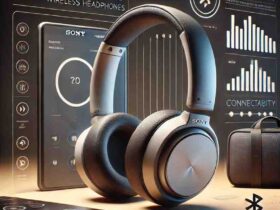
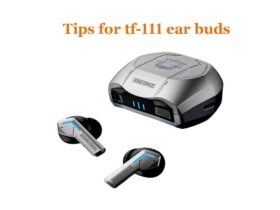
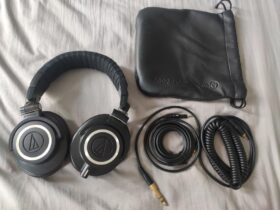
Leave a Review